happiness
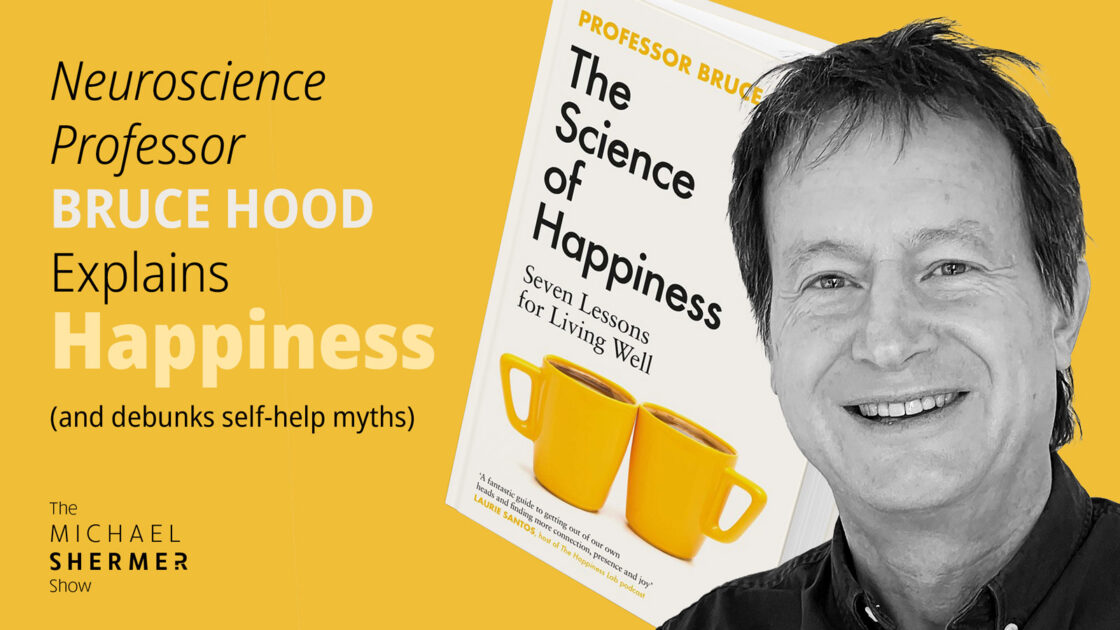
Shermer and Hood discuss: psychedelic drugs • defining the “good life” or “happiness” • measuring emotions • happiness as social contagion • eudaimonia (the pursuit of meaning) versus hedonism (the pursuit of pleasure) • genetics and heritability • cultural components • WEIRD people • The Big Five (OCEAN) • marriage and health • exercise and stress reduction • what the ancient Greeks got right about living the good life • how failure may actually be a key to more happiness…

Our society is obsessed with achievement. Young people are pushed toward the next test or the “best” grammar school, high school, or college they can get into. Adults push themselves toward the highest-paying, most prestigious jobs, seeking promotions and public recognition. As Adam Gopnik points out, the result is not so much a rat race as a rat maze, with no way out. Except one: to choose accomplishment over achievement. Gopnik provides timeless wisdom against the grain.
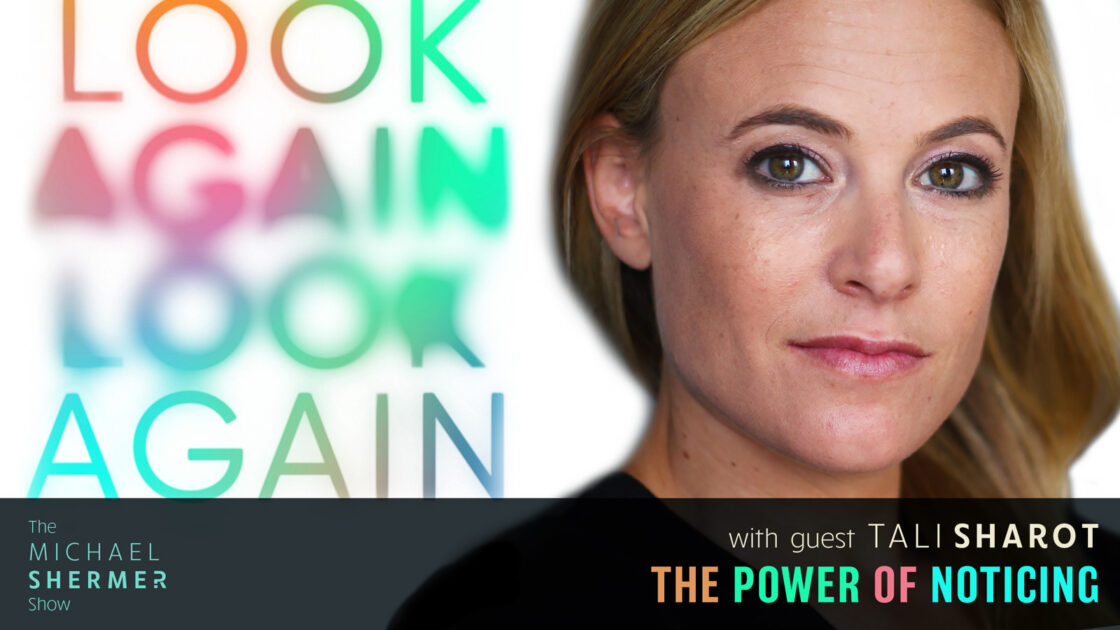
Shermer and Sharot discuss: the best day of her life • the evolutionary origins of habituation • habituation at work, at home, and in the bedroom • Why don’t we habituate to extreme pain? • marriage, romance, monogamy, infidelity • depression • depression, happiness, and variety • negativity nias • creativity and habituation disruption • lying and misinformation • illusory truth effect • truth bias • moral progress • preference falsification • pluralistic ignorance.

Shermer and Stephens-Davidowitz discuss: why some countries produce so many more NBA players than others • the greatest NBA players adjusted for height • why tall NBA players are worse athletes than short NBA players • How much do NBA coaches matter and what do they do? • In a population of 8 billion today compared to centuries past, where are all the Mozarts, Beethovens, Da Vincis, Newtons, Darwins, etc.?
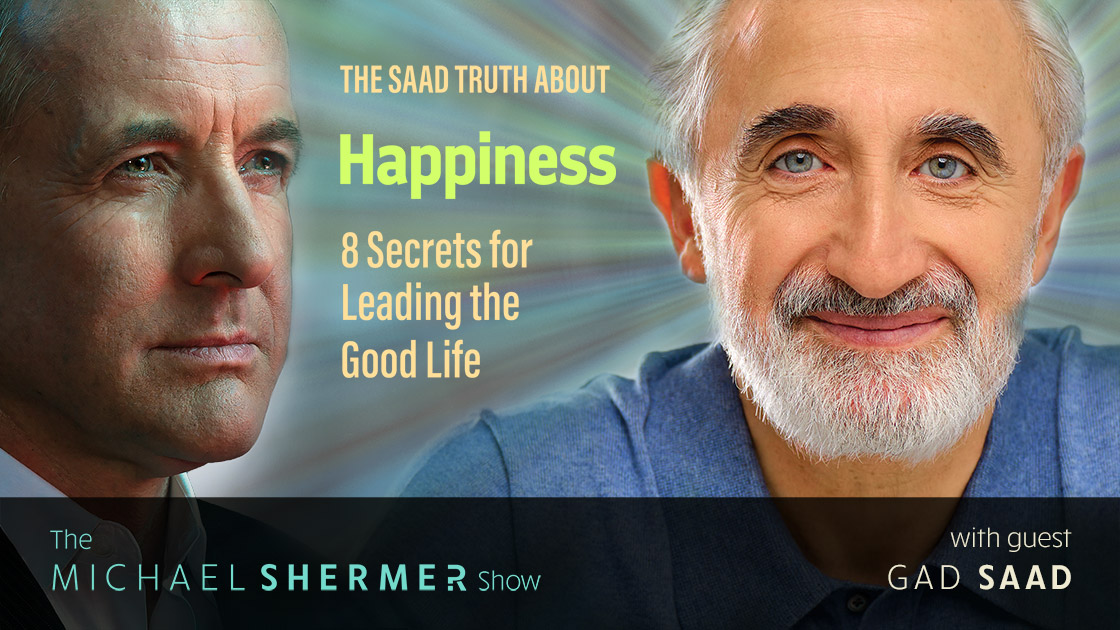
Shermer and Saad discuss: operational definitions of the “good life,” “happiness,” and “well being” • emotions • eudaimonia (the pursuit of meaning) versus hedonism (the pursuit of pleasure) • genetics and heritability • cultural components • the Big Five (OCEAN) • marriage (mate selection) • health • exercise and stress reduction • religion • anti-fragility • a playful outlook and curiosity • variety (the “spice of life”) • what the ancient Greeks got right about living the good life •…
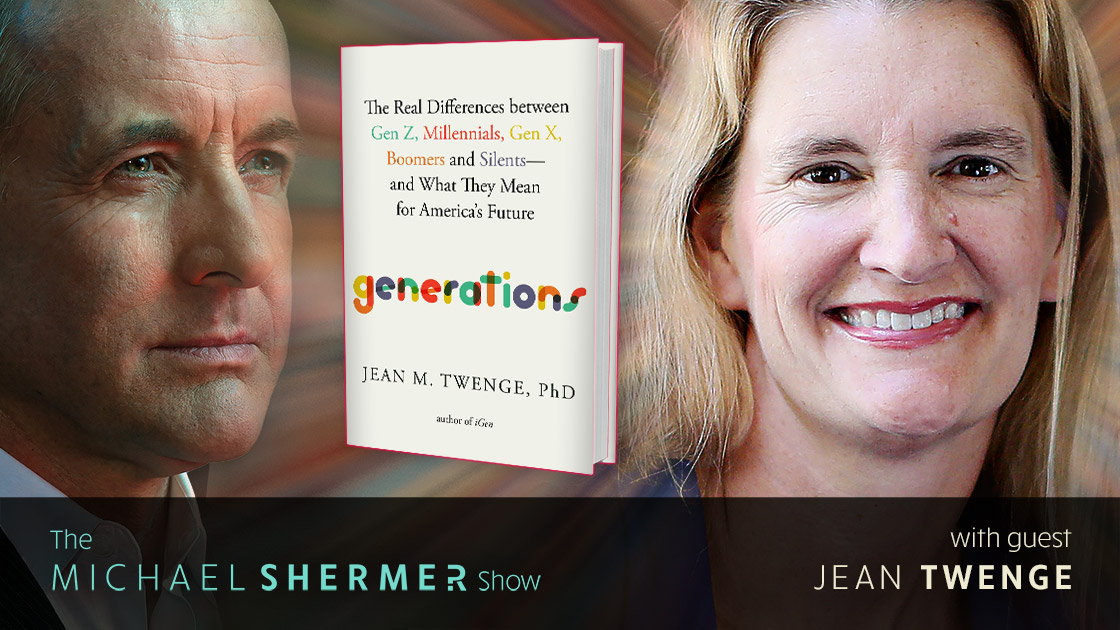
Shermer and Twenge discuss: untangling interacting causal variables (age, gender, race, religion, politics, SES, big events, slow trends, time-period effects, and generational effects) • fuzzy sets/conceptual categories • how historical events effect generations: the Great Depression, WWII, the Cold War and its end, AIDS, 9/11, The Great Recession, Covid-19, #metoo, #BLM, trans, AI • how long-term trends effect generations • technology as a driver of generational differences • civil rights, women’s rights, gay rights, trans rights • abortion and reproductive…

Shermer and Hecht discuss: awe and wonder • science and religion • the new atheists • humanism and atheism • secular Judaism • replacing religion, with what? • the original meaning of liturgy and why it’s still important • rituals for atheists • how to cope with loss, death, and grief • what to say at weddings and funerals • Alvy’s Error (the universe is expanding but Brooklyn is not) • what we do in the hear-and-now matters, whether or…
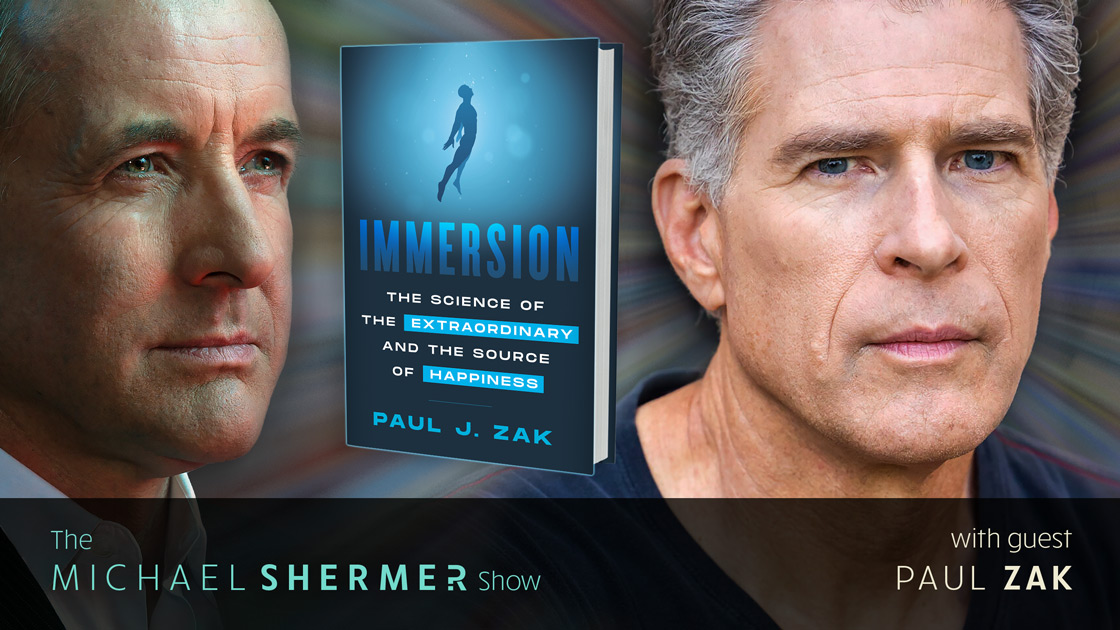
Shermer and Zak discuss: neuroeconomics, neuromanagement, and neuromarketing • Zak’s work with the CIA and DARPA • immersion and how is it quantified (with a formula) • monotony of the mundane • the ordinary and extraordinary • peak-end storytelling • immersion in advertising, entertainment, education, attractions, marriage, and retail • what makes a great movie or successful unscripted TV show • novelty • sensitivity training programs • how to give a TED talk • immersion and political candidates • The…
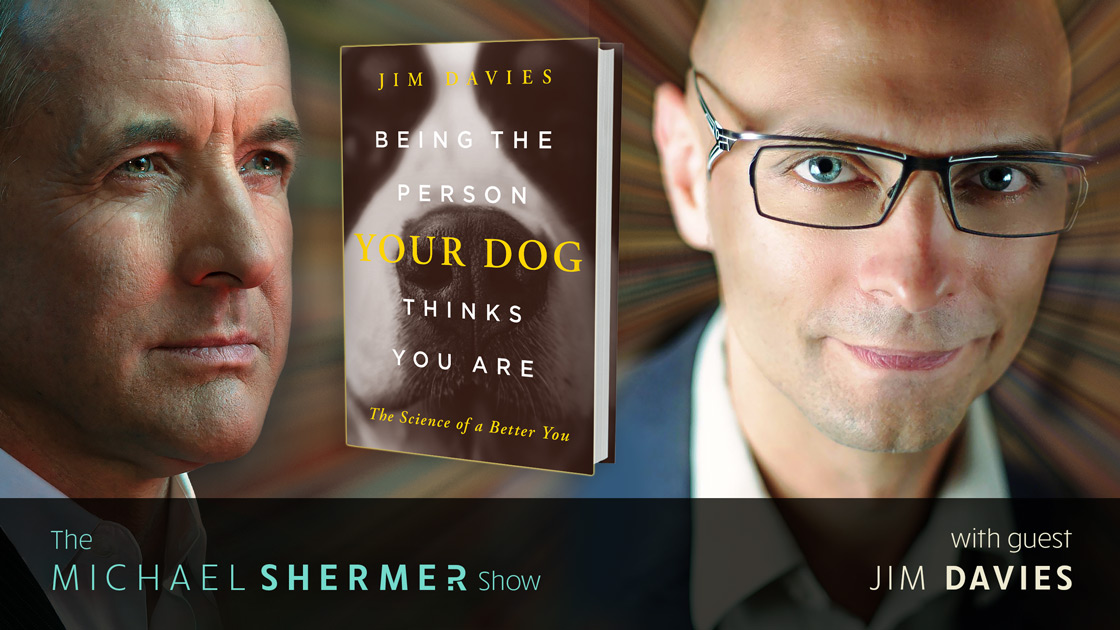
Shermer and Davies discuss: • an operational definition of the “good life” or “happiness” or “well being” • utilitarianism vs. deontology vs. virtue ethics • effective altruism • marriage and children • objective moral values • Do we have a moral obligation to help those who cannot help themselves? • Does America have a moral obligation to help oppressed peoples in dictatorships? • immigration • abortion • the welfare state • prostitution • reparations.
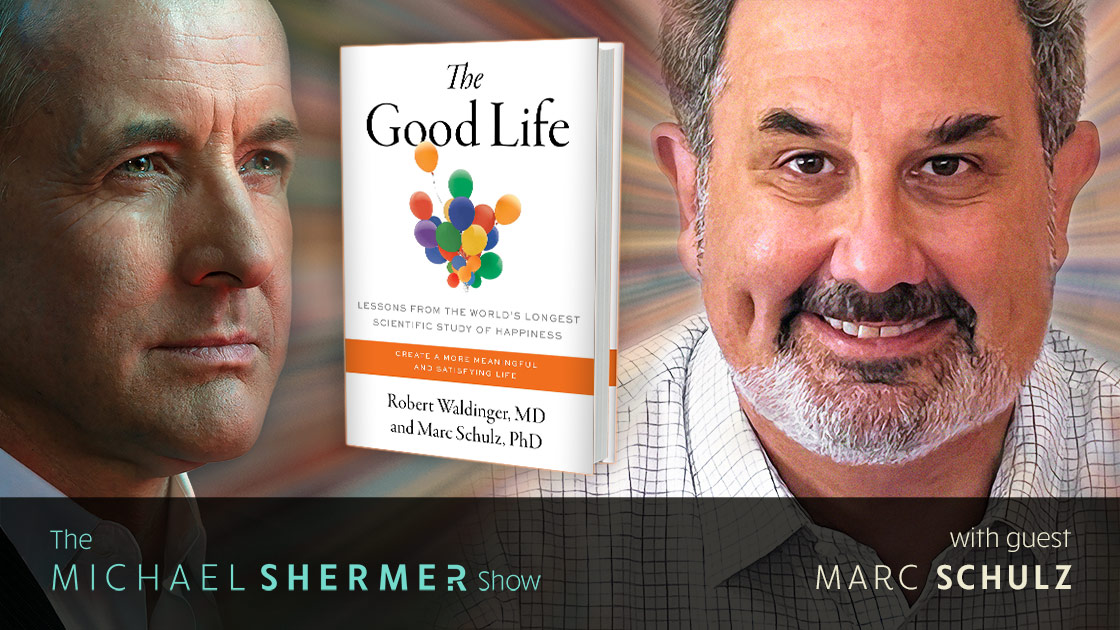
Shermer and Schulz discuss: an operational definition of the “good life” or “happiness” or “well being” • the reliability (or unreliability) of self-report data in social science • relative roles of genes, environment, hard work, and luck in how lives turn out • personality and to what extent it can be scientifically measured and studied • factors in early childhood that shape mental health in mid and late life • generational differences: • the impact of loneliness • misconceptions about happiness…

There is probably no other scientific discipline in which fads come and go so quickly, and with so much hype, as psychology. In his Quick Fix, Jesse Singal discusses eight different psychological ideas that have been promoted as quick fixes for different social problems. He refers to these as “half-baked” ideas—ideas that may not be 100 percent bunk but which are severely overhyped. This review of Singal’s book discusses the many different flawed studies that derailed psychology for years.
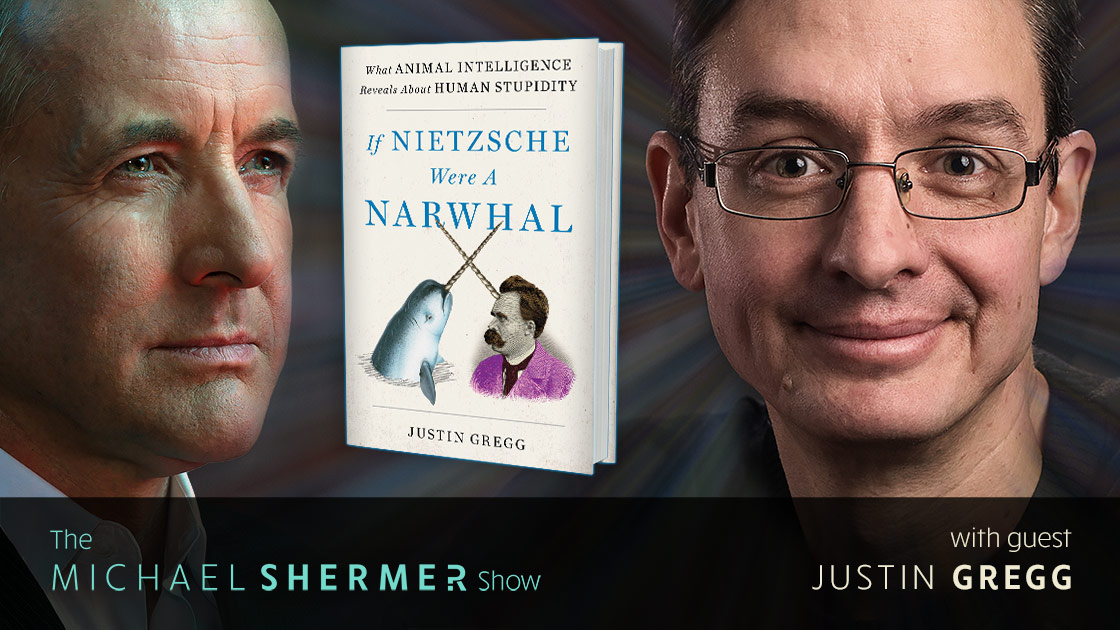
Shermer and Gregg discuss: • intelligence • stupidity • dolphins • artificial intelligence • language • rationality • moral systems • comparative thanatology • “causal inference” vs. “learned associations” • humans as “why specialists” • death awareness • why narwhals do not commit genocide • “prognostic myopia” • our “shortsighted farsightedness” as “an extinction-level threat to humanity” • consciousness and sophisticated consciousness: animals and humans • free will • determinism • pleasure vs. happiness vs. purposefulness.
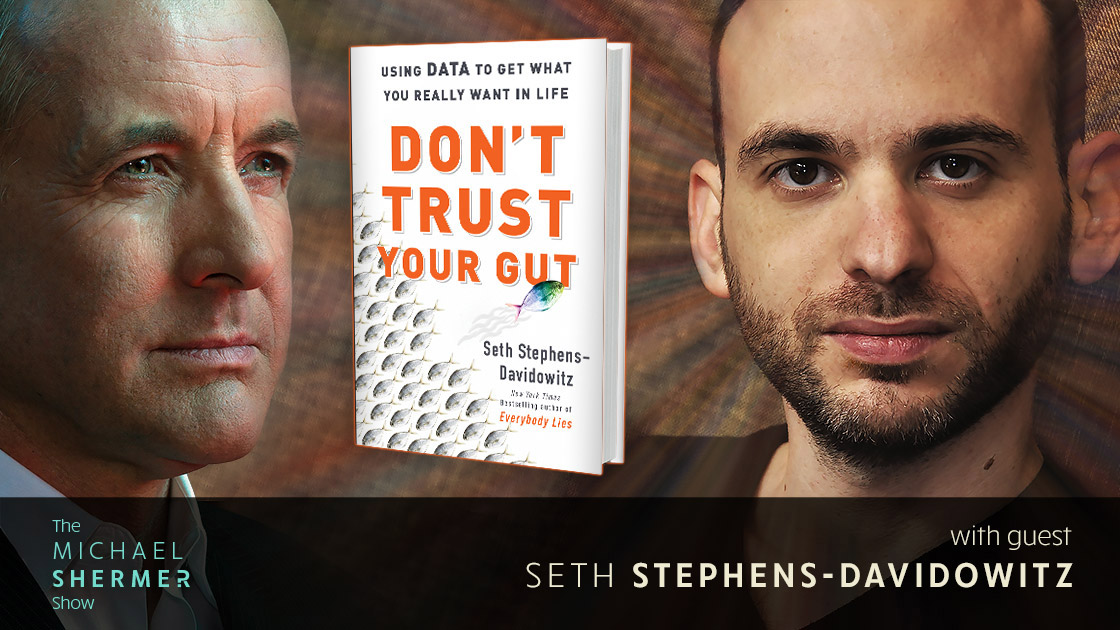
Most people rely on their gut instinct to decide how to date, who to marry, where to live, what career path to take, how to find happiness, but what if our gut is wrong? Biased, unpredictable, and misinformed, our gut, it turns out, is not all that reliable. Michael Shermer speaks with economist and former Google data scientist Seth Stephens-Davidowitz on using data to get what you really want in life.
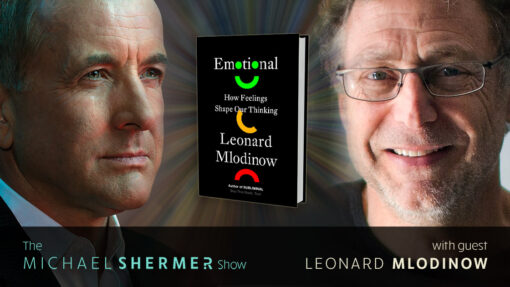
Extraordinary advances in psychology and neuroscience have proven that emotions are as critical to our well-being as thinking. In this conversation, Michael Shermer speaks with Leonard Mlodinow about his new book Emotional: How Feelings Shape Our Thinking.
Extraordinary advances in psychology and neuroscience have proven that emotions are as critical to our well-being as thinking. In this conversation, Michael Shermer speaks with Leonard Mlodinow about his new book Emotional: How Feelings Shape Our Thinking.
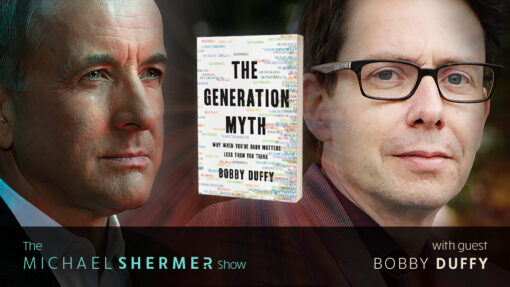
Boomers are narcissists. Millennials are spoiled. Gen Zers are lazy. We assume people born around the same time have basically the same values. But, do they? In episode 224 Michael Shermer speaks with social researcher Bobby Duffy who has spent years studying generational distinctions. In The Generation Myth, he argues that our generational identities are not fixed but fluid, reforming throughout our lives.
Boomers are narcissists. Millennials are spoiled. Gen Zers are lazy. We assume people born around the same time have basically the same values. But, do they? In episode 224 Michael Shermer speaks with social researcher Bobby Duffy who has spent years studying generational distinctions. In The Generation Myth, he argues that our generational identities are not fixed but fluid, reforming throughout our lives.

In episode 184 of Michael Shermer’s podcast, Michael speaks with Alexander Green about one of the most important and yet poorly understood concepts in modern society: money and why it matters.
In episode 184 of Michael Shermer’s podcast, Michael speaks with Alexander Green about one of the most important and yet poorly understood concepts in modern society: money and why it matters.

In episode 177 of Michael Shermer’s podcast, he speaks with neuroscientist and literature professor Dr. Angus Fletcher about 25 of the most powerful developments in the history of literature, from ancient Mesopotamia to Elena Ferrante.
NEXT →

























